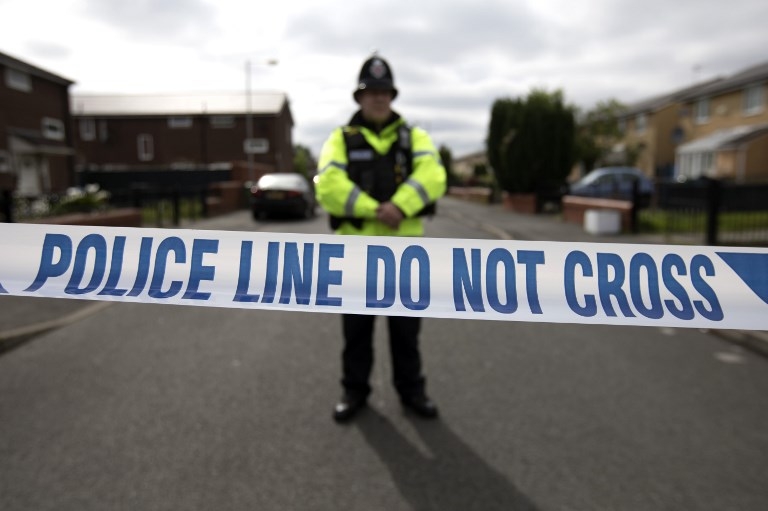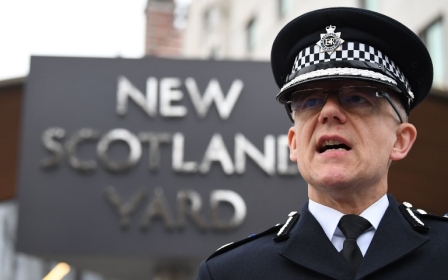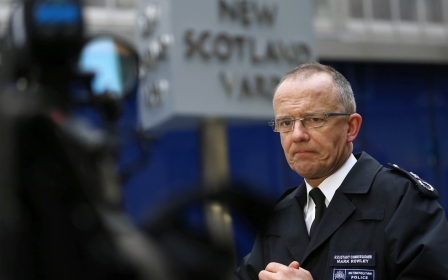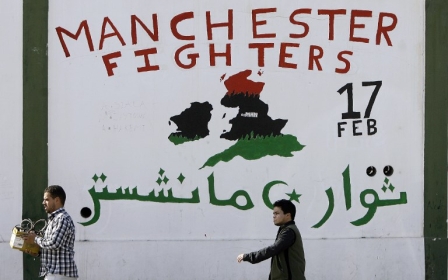UK terrorism arrests soar but most released without charge, figures show

The number of people arrested in the UK as part of police counter-terrorism investigations but subsequently released without charge has reached unprecedented levels, according to official figures published on Thursday.
The latest statistics, published by the Home Office, show that only 135 out of 412 people arrested in 2017 were subsequently charged, with 228 released without charge.
The total number of arrests was up by almost 60 percent and the number released without charge increased more than three-fold on the equivalent figures in 2016, as the UK was hit by a wave of attacks, including the Manchester bombing, the Westminster Bridge and London Bridge attacks, the Parsons Green train bombing, and a van-ramming attack near London's Finsbury Park mosque.
The latest figures show that only one person in every three people arrested on suspicion of terrorism-related offences last year was charged, a far cry from 2013 when the charge rate was 51 percent.
The figures appear to underscore what security services have said is a growing threat from militant groups but also reflect the lengths security forces have gone to in the wake of attacks in London and Manchester, stirring complaints in some communities.
The figures include 23 people arrested as part of the investigation into the Manchester attack, of which 22 were released without charge, 21 connected with the London Bridge attack in June after which 20 were released without charge and one person arrested in connection with the Finsbury Park mosque attack later that month.
A further seven arrests were made in connection with the attack on Parsons Green tube station in September, with six released without charge.
"When the arrest rate is high compared to the charge rate, it means more people's homes raided, their families in turmoil and their lives often destroyed - all without sufficient evidence to prosecute them,” Arun Kundnani, visiting professor of media, culture and communication at New York University and an expert on counter-terrorism policy, told Middle East Eye.
"That is not a measure of how well we are defending democracy from terror but its opposite," he added.
Right-wing attacks foiled
The detailed Home Office figures also show that more than half - 228 or 55 percent - were released without charge while another 33 were released on bail pending further investigation, and 13 faced alternative action.
145 white suspects were arrested, the highest since data collection started in 2001, pointing to the emerging threat of far-right groups such as the banned neo-Nazi group National Action. 170 individuals of Asian ethnicity were arrested, a 37 percent increase on 2016.
Last week, Mark Rowley, the UK’s former most senior counter-terrorism police officer, said that four right-wing attacks were foiled last year.
The statistics show that at the end of last year, 224 prisoners were in custody after being charged with or convicted of terrorism-related offences and show the Metropolitan Police Service stepping up its use of counter-terrorism stop and search powers. The number of searches carried out rose 59 percent to 767 from 483 the year before.
Security Minister Ben Wallace said the figures released on Thursday were "testament to the breadth of work undertaken by the police, security service and wider judicial system in identifying and stopping terrorism in our communities and bringing those responsible to justice".
He added: "The police and security service have been clear about the scale of the threat we face.
"We will continue to work with them and other agencies to ensure we have a broad response to all forms of terrorism both now and in the future."
But Tasnime Akunjee, a criminal defence lawyer, told MEE: “It is expected that the arrest rate will go up given the response to attacks in Manchester and London.
“However the arrest rate rising and charge falling suggests the level of competence displayed by counter-terrorism authorities has gone down proportionately.
“It’s disappointing that government agencies that are concerned with security focus on the arrest rate going up when a large number of those people are entirely innocent.”
The figures cover crimes introduced as part of the Terrorism Acts 2000 and 2006, such as the offence of collecting or possessing “information of a kind likely to be useful to a person committing or preparing an act of terrorism”, glorifying or encouraging terror attacks and the offence of “preparation of terrorist acts” which has been used to jail people attempting to join the Islamic State group in Syria and Iraq.
While the acts formalised the definition of terrorism they are mostly used in cases where a common law offence such as murder has not been committed, meaning the Finsbury Park attacker, Darren Osborne, was not charged with terrorist offences.
More people were detained last year under Schedule 7, a stop and search power used by police at ports and airports and introduced as part of the 2000 Act. The number of people detained rose 10 percent from 1,539 to 1,700, although the total number of those questioned fell by 16 percent to 16,349.
New MEE newsletter: Jerusalem Dispatch
Sign up to get the latest insights and analysis on Israel-Palestine, alongside Turkey Unpacked and other MEE newsletters
Middle East Eye delivers independent and unrivalled coverage and analysis of the Middle East, North Africa and beyond. To learn more about republishing this content and the associated fees, please fill out this form. More about MEE can be found here.




